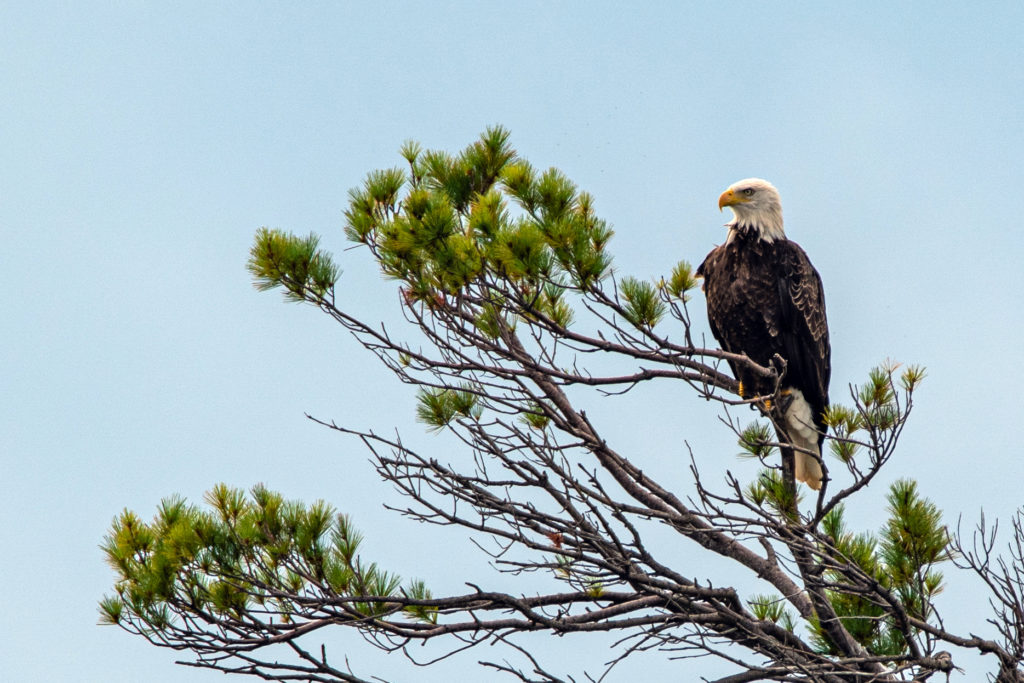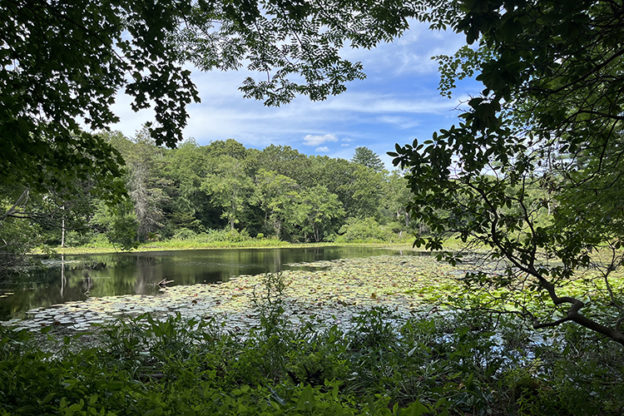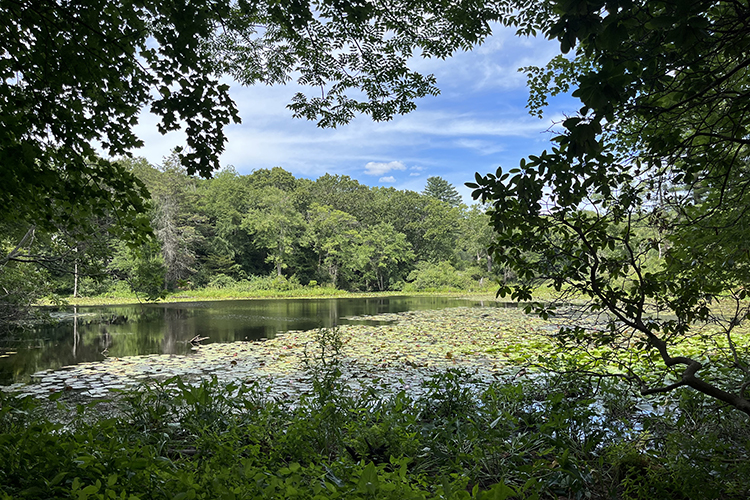The death of a Bald Eagle this week after ingesting rat poison is a heartbreaking reminder that we are overdue for critically-needed changes to pest control policies to limit the use of these poisons.
This is now the third bald eagle death due to rodenticides in Massachusetts in two years.

Why Is This Happening?
Anticoagulant rodenticides kill rodents by preventing blood from clotting, causing the animal to die from internal bleeding. These poisons can have unintended victims when wildlife, like hawks, owls, eagles, or foxes, eat prey that has consumed the bait.
Second-generation anticoagulant rodenticides (SGARs ) are especially problematic because they don’t kill rodents immediately. Rodents poisoned with SGARs can still live for a few days and consume more poisoned bait during that time; the delay means they can ingest enough poison to kill a much larger animal. Rodents weakened by poison make easy prey, and some wildlife such as eagles also consume dead animals, where the poison lingers.
Aren’t These Poisons Regulated?
SGARs have been banned by the EPA from the consumer market, but licensed exterminators are still allowed to deploy them. Other rodenticides, called first-generation anticoagulant rodenticides and non-anticoagulant rodenticides, are still approved for residential consumer use.
The issue of wildlife becoming the unintended victims of these poisons is a growing problem. Nearly every raptor species is vulnerable to rodenticide poisoning. For example, a 2020 study found that 100% of tested Red-tailed Hawks at Tufts Wildlife Clinic had been exposed to anticoagulant rodenticides. Secondary poisoning has also been documented in species like foxes, bobcats, and coyotes. SGARs are a threat to eagle populations nationally
The irony is that the more these predator species are harmed or killed by SGARs, the fewer predators there are to keep rat populations in check. Rodents breed much faster than predators. When predators are killed off by poisons, the rodent population can multiply even more quickly.
Other Options to Control Rodents
With rat populations on the rise, many communities are seeking effective pest control measures. Fortunately, we have many poison-free options for preventing and addressing rodent problems. The most important preventative measure is eliminating food sources and entry points: securing trash in rodent-proof containers and sealing holes in building foundations to exclude rats and other pests.
To kill rodents, traps can be used without harming other wildlife. If the situation necessitates hiring a pest control company, choosing one that fully utilizes Integrated Pest Management (IPM) can also have a big impact in reducing widespread pesticide use. IPM relies on a series of pest management evaluations, and its strategies can include trapping, sealing up entry holes in foundations, walls, and roofs, and removing or trimming vegetation that obscures the ground. When hiring a licensed pest control company, specifically request that poisons not be used and ask for confirmation of that on your written agreement with the company.
We also need laws to regulate the pesticides that do continue to be used. Mass Audubon and our partners are advocating for the passage of An Act relative to pesticides. This legislation would better regulate the use of SGARs, in turn reducing their impacts on birds of prey and other wildlife. The bill would:
- Increase use of IPM strategies in Massachusetts
- Educate consumers about the benefits of IPM and impacts of SGARs
- Require digitization of pesticide use forms, making them more accessible and searchable
Speak Up for Wildlife
An Act relative to pesticides had a strong chance to pass last year when the House and Senate reached a consensus on the bill’s content, but was a casualty of an end-of-year logjam in the state legislature, falling just a few procedural votes short of passage. This was a huge missed opportunity, so we need to rebuild momentum now to ensure it passes as soon as possible.
Urge your state legislators to support An Act relative to pesticides (S.487/H.725) today! By improving our approaches to pest management, we can reduce the need for rodenticides at their source and prevent more senseless wildlife deaths.




